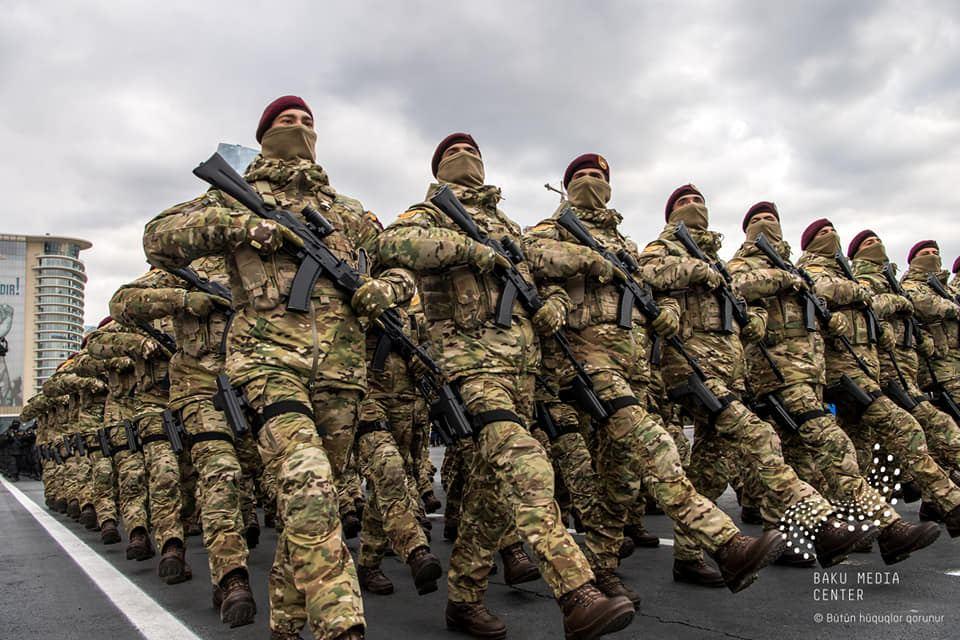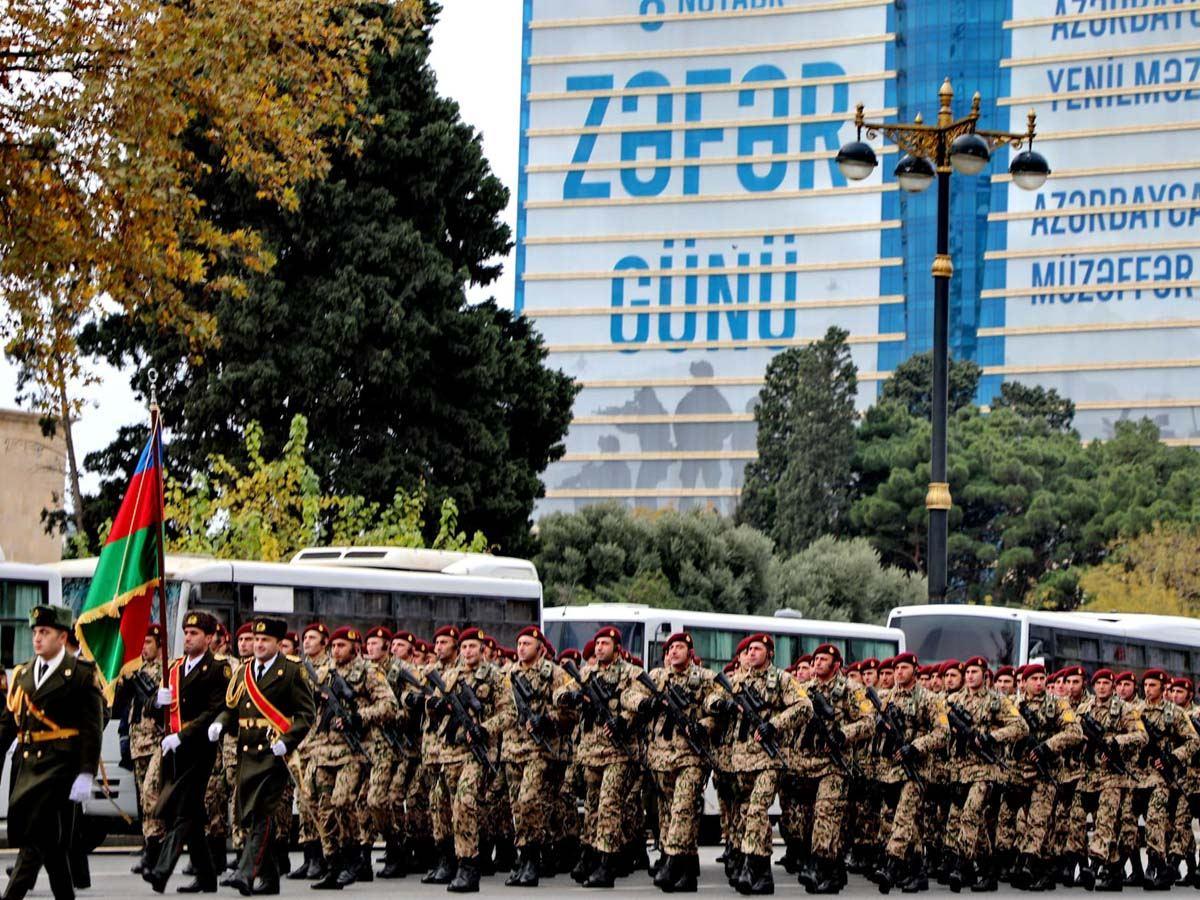Anniversary of grand military parade: Retrospective glance [PHOTO/VIDEO]
![Anniversary of grand military parade: Retrospective glance [PHOTO/VIDEO]](https://www.azernews.az/media/2021/12/10/3c3689a0e88c6720d396ad69078ece44.jpg)
By Orkhan Amashov
A year has passed since the historic Victory Parade, an event of immense symbolic significance, which not only marked Azerbaijan's decisive victory in the Second Karabakh War, but also sent a duly chilling message to the nation's detractors and adversaries, demonstratively indicating that any attempt to reverse the legal consequences of last year's war, as enshrined in the November 10 ceasefire deal, will be foiled with vehemence and unmistakable efficiency.
An old Latin adage of timeless relevance suggests that one who wants peace should prepare for war. The self-same maxim does not enlighten us as to what should be done once the war is won. Perhaps we, in turn, could add that the correct course of action is to consolidate one's gains and strengthen the resources which gave a rise to victory, so as to make peace sustainable. That is what Azerbaijan has been doing since the cessation of hostilities.
The Victory Parade was not a cheap act of sabre-rattling or infantile chest-thumping, but a splendiferously potent, and indeed timely, demonstration of military prowess and political ambition. It was not meant to be a portent of new escalations, but the harbinger of a new order underpinning a durable peace.
It was clear from the outset that Azerbaijan is determined to apply itself fully to the revival of the liberated territories. After nearly 30 years of incomprehensibly devastating vandalism, sheer mayhem and wanton destruction of inconceivable proportions, the task before Baku was and is still massive. Substantial chunks of the liberated lands lie entirely derelict, scattered with ruins. The presence of landmines and unexploded ordnances have been the cause of massive problems. Although, on December 4, Armenia allegedly surrendered all the relevant minefield maps, it remains to be seen if all the schematics provided are accurate.
The unique reconstruction process currently underway is being undertaken primarily through the use of the nation's natural resources. Azerbaijan is open to foreign contributions and rightly determined to favour its allies and trusted partners when choosing potential investors.
Amongst the events that took place over the past year, the opening of Fuzuli International Airport is of particular importance, as it is perhaps the clearest possible manifestation of the efficiency and tenacity with which vast rebuilding measures are being implemented.
The revival of Shusha is another sign of Azerbaijan's zealous commitment towards placing Karabakh at the heart of a wider map of the region. The government in Baku is conscious that if the liberated territories, which have been restructured into two administrative units, are to be economically viable, they must be properly connected with the rest of the country and the wider region. This necessity is being duly acknowledged through the emphasis on the improvement of transportation infrastructure. Shusha should not just be the cultural capital of Azerbaijan or the beating heart of Karabakh, it should also be vibrant and flourishing. That is the reason why Baku is hellbent on transforming the city into a tourism resort.
A year after the Victory Parade, the trilateral ceasefire statement has yet not evolved into a comprehensive peace deal. Wide strides have been accomplished, but there is still much to do. The final peace will not come in a package form. The likely probability is that separate critical agreements, covering various aspects of Azerbaijani-Armenian relations will be signed, leading to a comprehensive treaty.
To date, Armenia has been compelled to agree to certain clauses that are essential to the full implementation of the November 10 ceasefire deal. The trilateral statement, signed subsequent to the Sochi meeting on November 26, reiterated the importance of intensifying work on the unblocking of transportation routes, in relation to which a trilateral working group has been in existence since January 2021, laying the foundation for a bilateral commission that is to be instituted by the end of the year, working on the delimitation and demarcation of the Azerbaijan-Armenia state border.
For a truly sustainable peace to be achieved, the aggressor, Armenia, should not just accept its defeat, which it partly did in the form of reluctant acquiescence, but also readjust its long-held existential pivots. There must be a clear realisation as to the reasons that led to the catastrophic defeat in last year's war and revanchist tendencies should be curbed.
Armenia is still engaged in some introspection, but it is not very certain if a painstakingly arduous self-contemplation, essential to detoxification of the Armenian soul, is underway. There are some worrying signs. Former Armenian President Robert Kocharyan, the leader of the largest opposition faction in parliament, has been blathering about the "start of the pan-Armenian resistance" for some time.
Armenia needs to do a deep-dive and recalibrate its whole being in a holistic manner. This will happen throughout the journey leading to a final peace with Azerbaijan, and continue for some time thereafter.
--
Follow us on Twitter @AzerNewsAz
Here we are to serve you with news right now. It does not cost much, but worth your attention.
Choose to support open, independent, quality journalism and subscribe on a monthly basis.
By subscribing to our online newspaper, you can have full digital access to all news, analysis, and much more.
You can also follow AzerNEWS on Twitter @AzerNewsAz or Facebook @AzerNewsNewspaper
Thank you!


